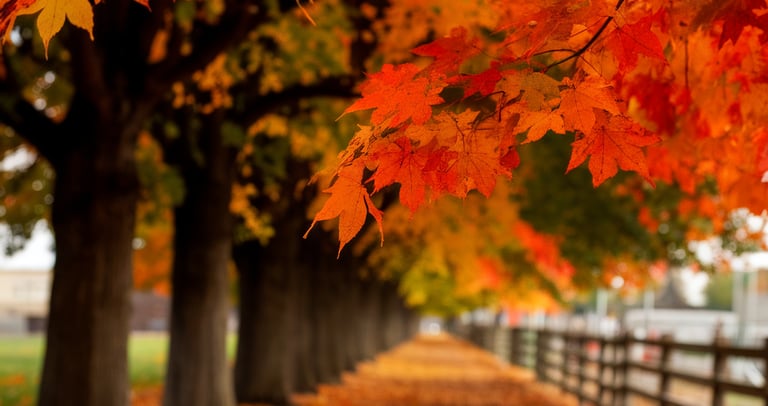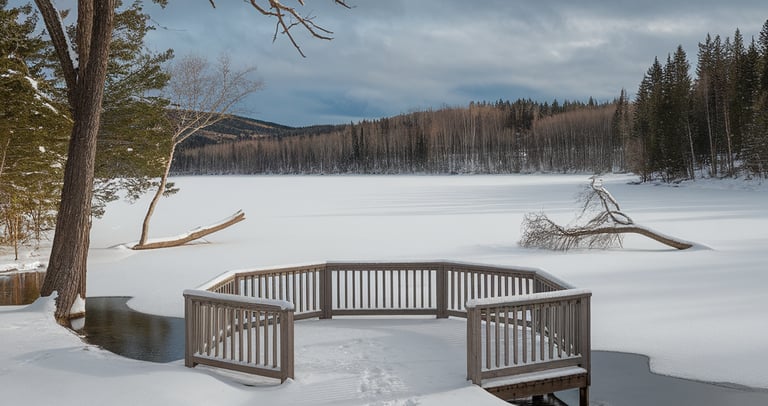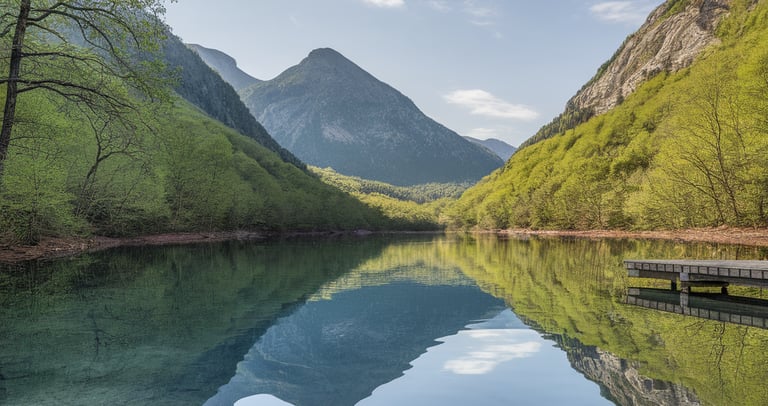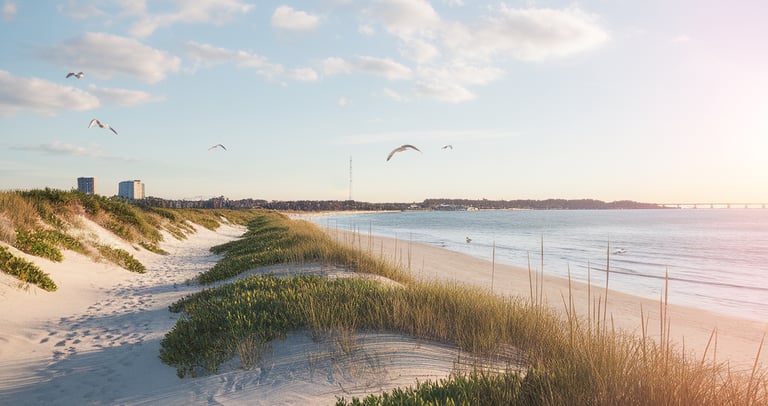
The Best Time for Garden Cleanups in Vancouver
The Best Time to do Garden Cleanups in Vancouver
Today I will be explaining how the people of Vancouver can keep our gardens thriving in our unique Pacific Northwest climate. Also, specifically highlight when to do what in terms of garden cleanups. As someone who's been nurturing gardens in this beautiful city for years, I've learned a thing or two about working with our specific conditions. At Blossom Landscaping we know lots for Vancouver cleanups, so if you want to know more feel free to contact us.
Fall: The Big Garden Cleanup
When September rolls around in Vancouver, it's time to roll up your sleeves and dive into the big fall cleanup. This is crucial for setting up a healthy garden for the coming year. Start by tackling leaf management, a key task in our leaf-loving city. Instead of bagging leaves for disposal, consider creating leaf mold - nature's free fertilizer. Simply pile leaves in a corner of your yard, keep them moist, and let nature do its work. In about a year, you'll have a rich soil amendment perfect for our acidic Pacific Northwest soil. The City of Vancouver offers excellent guidance on leaf collection and composting at https://vancouver.ca/home-property-development/seasonal-leaf-collection.aspx.
Next, focus on pruning, but do it with purpose. Cut back perennials, but don't be too hasty - leave some seed heads on plants like echinacea and rudbeckia. These not only provide winter interest but also serve as a crucial food source for our local birds. The Vancouver Park Board has great resources on wildlife-friendly gardening that can help you make informed decisions: https://vancouver.ca/parks-recreation-culture/wildlife.aspx.
In your veggie garden, it's time for the big wrap-up. Pull out spent plants, but consider leaving root crops like carrots and parsnips in the ground, protected with a layer of mulch. They'll sweeten with the cold and provide a mid-winter harvest treat - a little-known secret many Vancouver gardeners enjoy.
As you clean up, keep a watchful eye out for signs of disease. Our damp climate can foster fungal issues. Remove and dispose of any diseased plant material - don't compost it, as this can spread the problem. This vigilance will pay off in the health of your garden come spring.
Winter: Light Garden Maintenance
Vancouver winters are mild compared to much of Canada, but they still present unique challenges for gardeners. While it might be tempting to hibernate, there's still work to be done to keep your garden healthy.
Plant protection becomes key during this season. Use breathable fabric covers for tender perennials and wrap burlap around the trunks of young trees to prevent frost damage. For potted plants, consider moving them closer to the house or under the eaves to protect from excessive rain. After those rare Vancouver snowfalls, gently brush heavy snow off the branches of your shrubs and trees. Our wet snow can be surprisingly heavy and can cause significant damage if left to accumulate.
Don't neglect your compost bin during winter. Continue adding kitchen scraps, balancing "greens" with "browns" like fallen leaves or shredded paper. The decomposition process may slow, but it won't stop entirely in our mild climate. The City of Vancouver provides excellent composting tips at https://vancouver.ca/home-property-development/garden-composters.aspx.
Winter is also the perfect time for garden planning and learning. Consider taking a winter gardening workshop at UBC Botanical Garden to expand your knowledge: https://botanicalgarden.ubc.ca/
Spring: Garden Growth Time
As Vancouver bursts into bloom with cherry blossoms and daffodils, it's time to wake up your garden. Start your spring cleanup as soon as the soil is workable, typically in late February or early March.
Soil preparation is crucial at this time. Vancouver's acidic, often clay-heavy soil benefits from annual amendments. Work in well-rotted compost or aged manure to improve soil structure and fertility. Consider getting a soil test to check pH and nutrient levels - local nurseries like GardenWorks offer this service and can provide tailored advice based on the results: https://www.gardenworks.ca/
Pruning takes center stage in spring. Prune your roses once the forsythia blooms, typically in early March. For hydrangeas, a Vancouver favorite, wait until you can clearly see which stems have viable buds before pruning. This patience will reward you with a better bloom display.
Seed starting is another spring ritual for Vancouver gardeners. Begin seeds indoors for summer vegetables and annuals. Tomatoes, peppers, and marigolds can all be started in March for planting out after our last frost date, typically around mid-April. This head start can make a big difference in our relatively short growing season.
Don't forget about lawn care as spring progresses. Once the grass starts actively growing, typically in April, aerate and overseed any bare patches. Consider adding white clover to your lawn mix - it's drought-resistant and adds nitrogen to the soil, a natural fertilizer for your grass.
Summer: Maintain and Monitor Plants
Vancouver summers are a gardener's delight - warm, generally dry, and perfect for abundant growth. Your focus now shifts from cleanup to maintenance and enjoyment.
Watering becomes a key task in our dry summers. Water deeply but infrequently to encourage deep root growth. This is especially important for newer plants and during dry spells. Consider installing a rain barrel to capture winter rains for summer use - it's eco-friendly and can save on water bills.
Stay on top of weeding, especially invasive species like English ivy and Himalayan blackberry. These can quickly take over in our climate. The Invasive Species Council of BC has excellent resources for identifying and managing these persistent pests: https://bcinvasives.ca/
Keep an eye out for garden pests and diseases. Vancouver's mild climate can foster issues like powdery mildew and aphids. Treat problems promptly, preferring organic methods to protect our local pollinators and waterways. Regular inspections can catch issues before they become major problems.
Year-Round Garden Care
While each season has its specific tasks, some garden maintenance is year-round in Vancouver's climate. Regular plant inspections, proper soil moisture management, and consistent mulching are tasks that know no season. Don't be afraid to let some areas of your garden go a little wild, especially in winter. These natural areas provide crucial habitat for beneficial insects and wildlife, contributing to a healthier ecosystem in your backyard. Check out our blog to learn more about Vancouver specific information.
Remember, every Vancouver garden is unique. What works in Kitsilano might not work in East Van. Observe your plants, chat with your gardening neighbors, and don't be afraid to experiment. Our city's mild climate allows for a diverse range of plants, so get creative!
When the job gets too big - like large tree pruning or persistent pest issues - don't hesitate to call in the pros. The BC Landscape & Nursery Association has a great directory of certified professionals who understand our local conditions: https://bclna.com/
By aligning your gardening activities with Vancouver's unique climate and embracing both traditional and eco-friendly practices, you'll create a thriving, beautiful landscape that enhances your home and supports local biodiversity.
If you want to learn more about garden cleanups or how we at d handle out cleanups, then visit our Garden Cleanup Services page.










